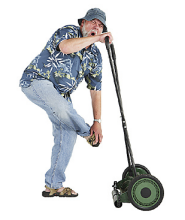Amei o podcast, em especial a transcrição. Tinha ouvido vc no English experts e resolvi ir atrás, parabéns e muito obrigado!
My cousin is a sore loser. Everytime I win him in a game of PS2 he gets whining that it was unfair and pretend that your finger is sore.
And sometimes he gets angry with me, but I don’t lose any sleep over it.
Dear Ana,
I’m here to thank you for all these PostCasts, I like a lot. And ask you help us with any vocabularies of companies. Such as answering the phone or some very expressions used. Please.
Thank you,
Fernando Souza
Olá Ana acompanho já há algum tempo o seu trabalho , nós ensinando com seus podcast, parabéns eles são ótimos,
mas estou com uma duvida , preciso melhorar meu listening, e não sei como fazer isto da melhor maneira. nao sei se só ouvindo suas aulas isso é possível, ou é necessário eu explorar mais os diálogos entre pessoas , o que vc me diz Ana .
Vá na barra lateral e procure “como falar inglês”, Leandro – escrevi pra responder esse tipo de pergunta ;)
Já faz um tempo que baixo podcast do site e é a primeira vez que posto aqui. Só gostaria de agradecer pelos posts. Tem me ajudado bastante. ^^ Obrigada mesmo! Beiijãooo
Great podcast Ana! :)
Ana, sempre que recebo um podcast novo eu primeiro escuto para depois olhar a transcrição, desta forma eu consigo perceber o meu avanço na língua, porém acho que foi aqui no inglês online que vi algo escrito que se você ouve e acompanha com a escrita você pode passar pelo problema de que quando não tem a escrita você não consegue compreender o que esta sendo dito. Por isso é que sempre ouço primeiro e leio depois, caso eu não esteja vendo a escrita depois de ouvir e saber do que se trata minha mente voa porque eu já sei o que esta falando então quando percebo já parei de ouvir e estou com a mente longe. Gosto de depois de ouvir uma ou duas vezes sempre acompanhar com a escrita, você acha que isto vai prejudicar a prática ou não?
Abraços… E como sempre, não poderia ser diferente, o podcast esta ótimo!!!
Hi Cleide,
Quando vc ouve um áudio em inglês, ou vc entende bem, ou não. Se você não entendê-lo bem, a transcrição é algo valioso pois vai te ajudar na compreensão. Continuar ouvindo sem entender é algo q não recomendo por, na minha experiência, não ser a maneira +eficiente de aprender. Por que não usar a transcrição, se ela vai ajudar a compreender?
Acho que isso te ajuda (acompanhar a escrita), também para aprender a escrita (sem ver como é escrito, como a gente aprenderia?)
E entendo perfeitamente o negócio da mente voar, rs…
Abs!
agradeço imensamente seus conhecimentos,,pois fiz o curso de comissario e necessito muito do ingles e estou aprendendo muito com voce .,,,ana parabens..
Valeu, Ramon! Feliz em saber.



 wrong… Some people call that “whining”. Whining means complaining about something in kind of an annoying way. So a sore loser won’t accept that they lost the competition and they’ll get mad, or pouty, or they’ll whine… that’s a sore loser. And by the way, the word ‘sore’ is frequently used to mean that some part of your body is painful to the touch, or just plain hurting. For example, you know when your throat kinda hurts when you’re about to get a cold? You have a sore throat. You know when you stub your toe and then your toe’s hurting for the next few days? Your toe is sore; you’ve got a sore toe. Another one: when you go back to exercising after a long time without exercise, you can expect your muscles to be sore for a few days. And just a pronunciation tip here: I just said ‘muscles’: m-u-s-c-l-e-s, and we say muscles.
wrong… Some people call that “whining”. Whining means complaining about something in kind of an annoying way. So a sore loser won’t accept that they lost the competition and they’ll get mad, or pouty, or they’ll whine… that’s a sore loser. And by the way, the word ‘sore’ is frequently used to mean that some part of your body is painful to the touch, or just plain hurting. For example, you know when your throat kinda hurts when you’re about to get a cold? You have a sore throat. You know when you stub your toe and then your toe’s hurting for the next few days? Your toe is sore; you’ve got a sore toe. Another one: when you go back to exercising after a long time without exercise, you can expect your muscles to be sore for a few days. And just a pronunciation tip here: I just said ‘muscles’: m-u-s-c-l-e-s, and we say muscles.